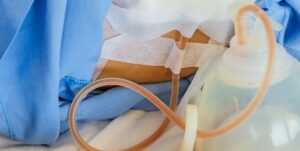Catheter Injury Attorney
Catheters are thin, flexible tubes used in a range of medical operations. Urinary catheters, which assist evacuate urine from the body, are familiar to most individuals. Fluids can also be injected into the body through catheters. Cardiac catheterization, for example, injects a dye into the heart that may be seen on X-rays. Catheters are also used to obtain tissue samples, administer devices such as angioplasty balloons and stents, and perform minimally invasive surgery to cure disorders.
Recalled Catheters
The tip or shaft of millions of catheters has been recalled because it can break within a patient’s body. People who had heart attacks, blood clots, organ damage, or needed emergency surgery have brought catheter injury cases.
Penumbra Jet 7 Catheters
The FDA issued a warning to healthcare practitioners to avoid using Penumbra Jet 7 Xtra Flex catheters after receiving more than 200 complaints of injuries and malfunctions, including at least 14 deaths. Catheters are often used in stroke victims to remove blood clots. Blood vessel injury, major bleeding, hemorrhage, and stroke are among the injuries (cerebral infarction).
Cook Medical Beacon Tip Catheters
Cook Medical recalled more than four million surgical catheters featuring its Beacon Tip technology. These medical devices were recalled because of the risk of the devices fracturing and separating, which could in turn cause pieces to embolize to the heart or lungs.
Boston Scientific Fetch 2 Aspiration Catheters
Boston Scientific recalled 21,155 of these catheters. (The company acquired this line of catheters from Bayer Medical Care, Inc.) These catheters were recalled because they could separate and cause the lungs and heart to become immobilized.
Venture Catheters
Nearly 5,000 Venture Catheters have been recalled by TFX and Vascular Solutions because the tip can break off in a patient’s blood artery and cause an embolism, blood clots, organ damage, or death.
Manufacturers Urged to Redesign Catheters
Tubing and catheter misconnection mishaps are prevalent. Misconnections of tubing and catheters frequently occur. They can be fatal. The Joint Commission on Accreditation of Healthcare Organizations issued an alert challenging manufacturers of these defective devices to redesign them in ways that make dangerous misconnections much less likely.
What are the types of catheters?
Foley catheters are used to drain urine from the urinary system. They are placed supra-pubic drain urine from the bladder through the skin. The latter is administered in individuals who have a urinary blockage that prevents normal flow. It’s also a realistic option if urethral catheterization has failed.
Why are catheters necessary?
The following medical ailments may need the use of a catheter:
- For end-of-life care
- Surgical techniques
- Acute urinary retention.
- Bladder neurogenic.
- To keep track of the amount of urine produced.
- Urine is collected for diagnostic purposes.
- Urinary tract radiographic examinations.
- Bladder neurogenic.
- The inability to urinate is due to a mechanical issue.
- Surgical techniques
- Prevent infections in incontinent patients who have open sacral or perineal wounds that are healing.
- Immobilization over an extended period because of medical issues such as a mending pelvic fracture.
Attorney for Catheter Injury
Our bladder and urethra injury attorneys provide free consultations to decide if an injury was caused by a defective catheter. David P. Willis is board certified as a personal injury trial law specialist. Our attorneys in Houston assist patients and families around the United States, and we do it with unrivaled experience and success. Please call us at 1-800-883-9858 or 713-654-4040 to talk about your injury caused by medical tubing or a catheter.

